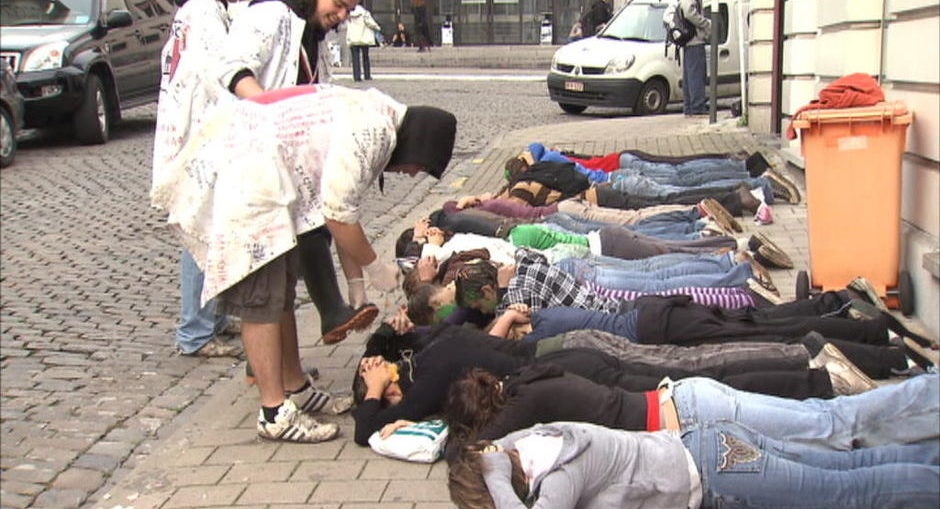A hearing scheduled for Friday in the case of a Flemish student who died during hazing will be postponed to a date yet unknown, Belga News Agency reported on Wednesday.
The case involves the death of Sanda Dia, a civil engineering student who was 20 years old at the time and wanted to join student club Reuzegom. During the hazing, Dia and two other students were forced to drink a brew of fish oil, in which live goldfish, mice and an eel were mixed. They had to dig the water hole in which they had to stand in, after which they were urinated on repeatedly. Dia was brought to hospital several hours later with a body temperature of 27.2 degrees.
The Council Chamber was set to decide on Friday whether or not to refer the case to the criminal court. As at least two parties have requested the completion of additional investigation beforehand, the hearing “will be at most a formality,” De Morgen wrote on Wednesday afternoon.
Related News
- Reuzegom: what happened during Belgium's deadly student hazing?
- KU Leuven staff want tougher punishment for students involved in deadly hazing
All parties have until 4:00 PM on Thursday to request additional acts of investigation before the investigative judge. So far, at least two lawyers have announced their intention to do so. Both lawyers represent on of the eighteen members of the student group.
One of the two lawyers said he “was very moved by the interview with Sanda Dia's father in De Morgen,” commenting that “he hopes that one day he will be able to understand how all this could have happened. I guarantee you that my request is aimed at contributing to this.”
Meanwhile, Dia’s father’s lawyer commented that “the line of non-empathic of the Reuzegom people and their parents is being continued by their lawyers. What does one still care about a father who has lost a son?”
The eighteen members of the Leuven student club could face additional punishment for the involuntary murder of the student in December 2018. They could also be prosecuted in court for degrading treatment, culpable negligence and the deliberate administration of harmful substances resulting in death.
Jason Spinks
The Brussels Times

